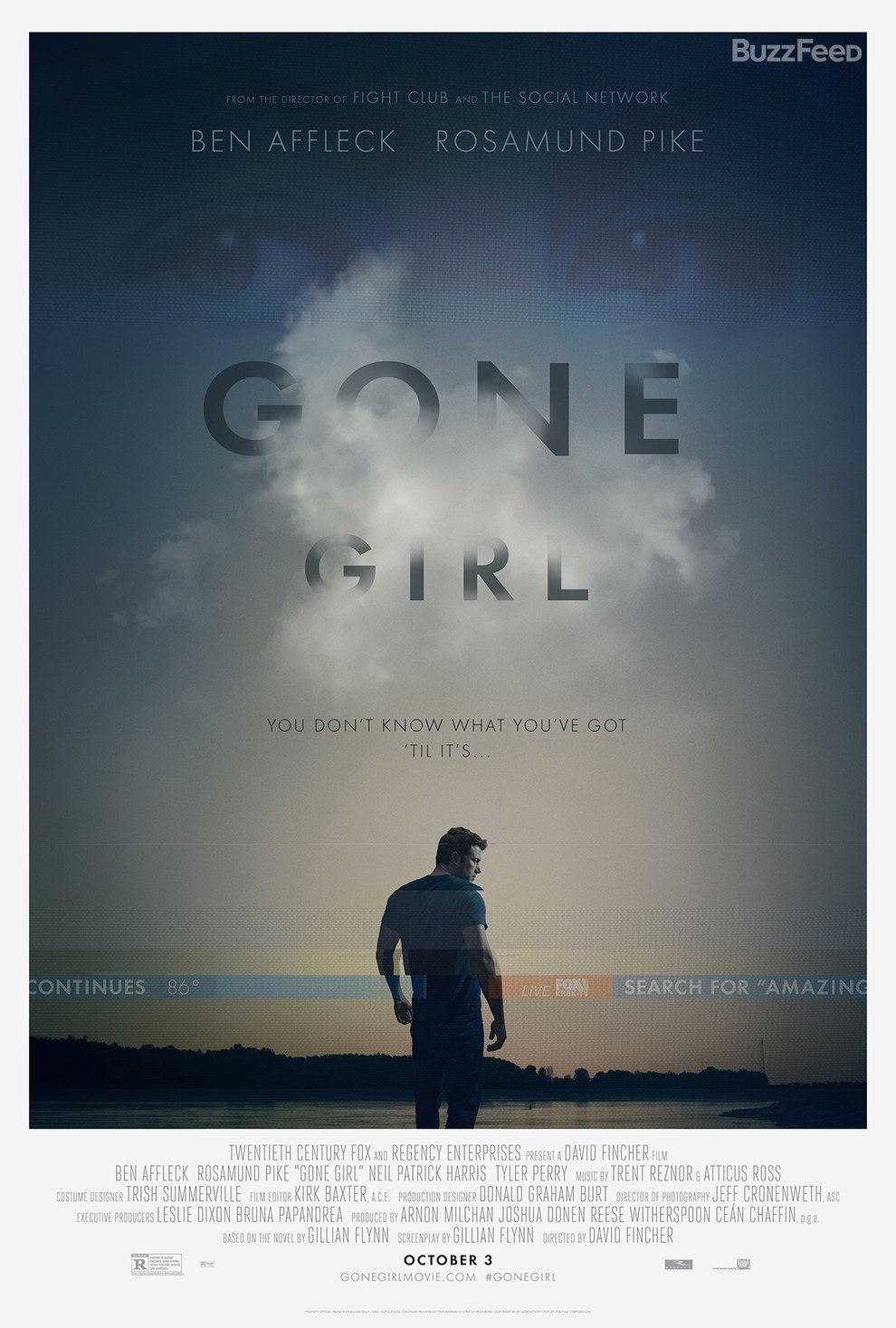I’ve never been one for horror movies. The idea of sitting in a theater and watching unmitigated gore and gimmicky “gotcha!” moments is about as appealing to me as a field trip to the local dump. But suspense? Dark and twisted psychological thrillers? All day long. And it doesn’t get much more dark and twisted than Gone Girl, the exquisitely-crafted and absolutely mind-blowing film from director David Fincher.
Because there are apparently still three or four people in the world who have not yet (A) read Gillian Flynn’s ubiquitous 2012 novel or (B) been told what happens, here’s the spoiler-free scoop: Nick Dunne (Ben Affleck) returns home one day to find his living room a shambles and his wife Amy (Rosamund Pike) missing. Told in juxtaposition between the present-day police investigation and flashbacks courtesy of Amy’s unearthed journal (and revealed with Pike’s spooky voice-over narration), Gone Girl gives us a grim look inside a broken marriage. And that’s pretty much all I can say. Purists, though, fear not—Flynn wrote the screenplay herself, and though minor parts are truncated, the plot remains largely unaltered from beginning to end.
We can all safely agree that Fincher is one of the most intriguing and unnerving directors working today. From Se7en to The Game to The Social Network, he has created wonderfully disturbing films, where nuance is often as big a player as the individual characters. He rarely, if ever does anything over-the-top, and that restraint is crucial to the dark undercurrent that bubbles just beneath the surface of his work.
If there’s a film school somewhere that offers a seminar on Fincher’s oeuvre (and if not, there should be), it could spend almost an entire semester just on Gone Girl alone. His frequent collaborators, including cinematographer Jeff Cronenweth (The Girl with the Dragon Tattoo), editor Kirk Baxter (The Curious Case of Benjamin Button), and composers Trent Reznor and Atticus Ross (The Social Network) give the film its terrifically unsettling identity and bring it alive with a heartbeat all its own. You spend the first half of the film realizing something just isn’t right between Nick and Amy, but it’s impossible to pinpoint exactly what it is. And then, after an innocuous fade to black, the sucker punch arrives to whack you in the gut. It’s a simple, almost throwaway moment in and of itself, but it has a more wrenching and profound impact that any explosion Michael Bay ever staged or any “gotcha” that Eli Roth ever dreamed up.
Affleck, turning in perhaps his best acting performance, is frankly a revelation here. He takes Flynn’s almost comically flawed character and makes Nick a complex and dynamic part of this twisted funhouse. And Pike? Even more so. Previously relegated to largely forgettable roles in dreck like Die Another Day and Johnny English Reborn, she finally gets her breakthrough moment—the chance to show us the power of subtlety and to prove she is among the elite actresses at work today. From tiny moments like the almost imperceptible erosion of Amy’s wry smile to the larger passive-aggressive blowouts with Nick, it’s a stunning performance that instantly vaults Pike to the top of the list of Oscar contenders.
Even after having read the book (twice), I still sat in awe, marveled by the symphony of dysfunction that Fincher and his cast created. Gone Girl is as captivating (and downright terrifying) as anything to hit theaters so far this year.
5/5 stars
